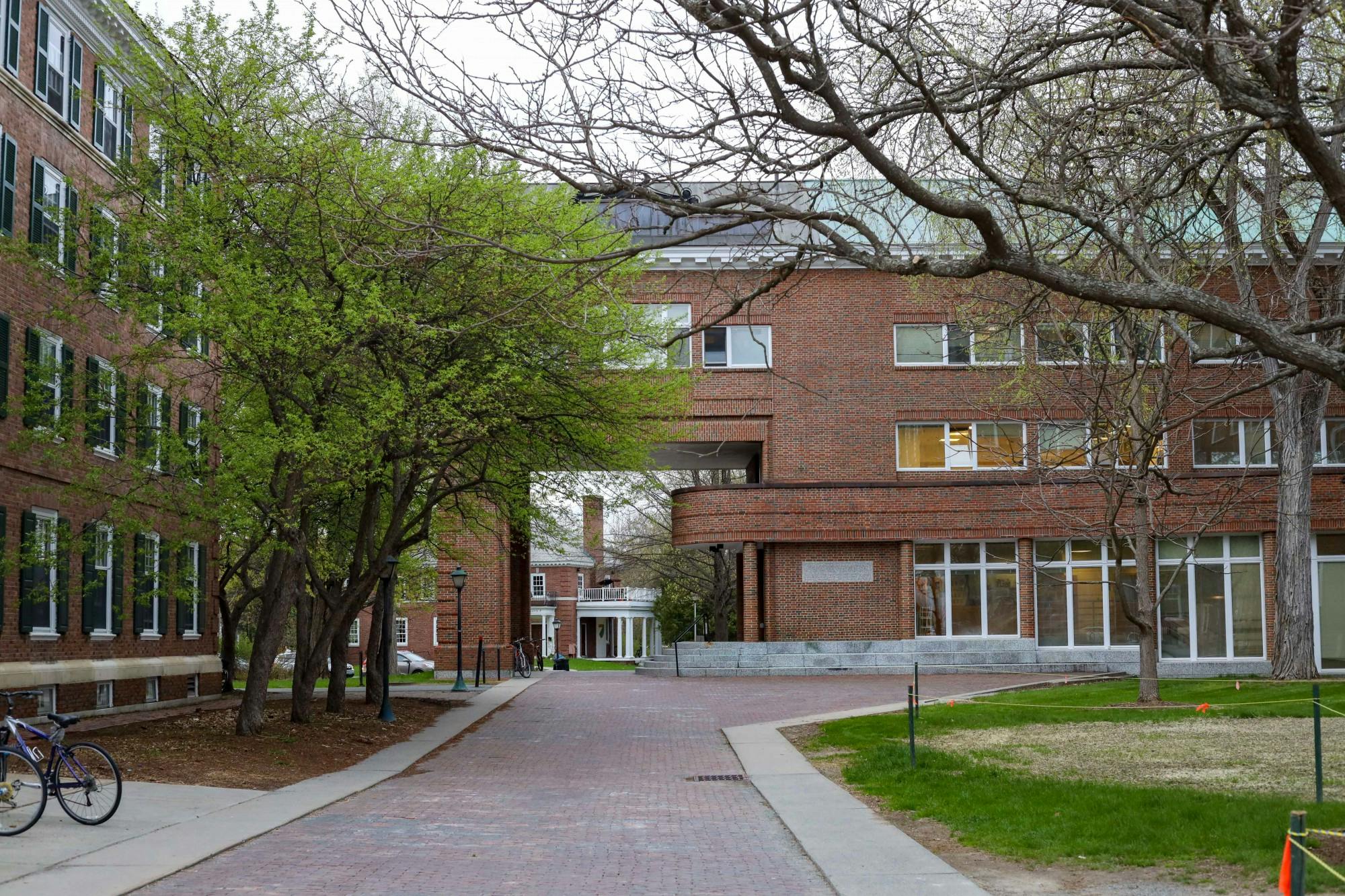As Dartmouth awaits results on election night, several organizations have organized events either in person or over Zoom.
The Rockefeller Center for Public Policy, Office of Student Life, Collis Governing Board and Student Assembly are co-hosting a virtual election watch party via Zoom on Nov. 3 at 7 p.m. Several campus organizations — the College Democrats, College Republicans, Dartmouth Libertarians and Dartmouth Political Union — are co-sponsoring the event. Each of the four political organizations will host an in-person watch party for a limited number of students as well.
The Zoom event will include a half-hour discussion on national politics featuring CBS News correspondent Chip Reid, followed by a live Q&A.
The event will also feature vice president for communications Justin Anderson, who will moderate the event, and director of the Rockefeller Center Jason Barabas ’93, who will serve as the host, according to assistant director for co-curricular programs at the Rockefeller Center Bob Coates. Anderson, Barabas and Reid will field questions from students tuning in live from their respective venue locations for the Q&A segment with Reid.
Student group watch party venues will be scattered across campus — the Collis Governing Board has reserved Collis Commonground, SA has arranged a tent outside the Collis Center and the Rockefeller Center will be using the three classrooms in its basement.
The College Democrats, College Republicans, Dartmouth Libertarians and the DPU will sponsor tents around campus that are open to anyone on a first-come, first-served basis and students can come and go as they please. Most tents can accommodate anywhere from 22 to 25 students, Coates said, depending on how many faculty and staff members cycle in and out.
Many of the participating organizations also have plans to watch election returns after the event. DPU president William Reicher ’22 said the DPU has reserved its tent until 11 p.m. and plans to watch news broadcasts of election results directly after the discussion. Due to public health concerns, none of the participating organizations will be able to provide food or beverages, but Reicher emphasized that attendees should feel free to bring their own snacks.
He added that he laments the different student groups will not be intermixing; each of the political organizations’ respective members will likely opt to go to their own tent, even though they are technically allowed to enter any of the tents. Originally, the DPU had planned to rent out four rooms, where members of the College Democrats, College Republicans and the DPU could civilly discuss their views.
“It feels to me that [this event] is not much different from each organization having their own watch party, and it makes me a little disappointed because I was hoping we could have a unified event instead of a bunch of competing events,” he said.
College Democrats president Emery Rheam ’22 said she thinks the in-person watch parties are “wonderful” and hopes students who would feel most comfortable surrounded by other Democrats on election night will come to their tent. She added that the College Democrats plan to view election returns following the discussion.
Coates said that he knows Reid personally, after having worked with him on Capitol Hill. He noted that Reid has extensive experience covering national politics — he formerly served as a correspondent for ABC and NBC News, and he was CBS News’ chief White House correspondent from 2009 to 2011.
While the watch party will be the primary on-campus election event, other College entities have held ongoing exhibits and initiatives related to the election. The Hood Museum has partnered with Plan Your Vote — a 2020 artist initiative that uses visual art to encourage citizens to vote — to share the artwork of Julie Mehretu, one of the artists featured by Plan Your Vote, on Facebook and Instagram.
Additionally, the library has mounted a virtual exhibit, “Gobbledygook & Baloney! The 1984 Democratic Presidential Debate at Dartmouth College,” that features photos and historical accounts of the 1984 Democratic presidential primary debate held at Dartmouth. The exhibit is available on the library’s website or by scanning QR codes displayed in Baker-Berry Library.
Humanities and social sciences librarian Wendel Cox said he and head of teaching and learning Laura Barrett decided to center their exhibit on the 1984 debate after uncovering “engaging” historical accounts in the College’s archives.
“At first, at least for me, I thought, ‘Is this a little too narrow?’... but it just became more and more compelling,” Cox said. “It was the first major televised presidential primary, and it [was] the first event for the Rockefeller Center.”
The virtual exhibit contains ’80s-themed designs — created by exhibits and graphic arts designer Dennis Grady — of photos from the debate layered with red and green, according to Cox. He explained that the exhibit’s name — “Gobbledygook & Baloney!” — comes from an exchange between former Sen. John Glenn, D-Ohio, and Vice President Walter Mondale during the debate.
After Election Day, the Rockefeller Center and the Dickey Center for International Understanding will be hosting post-election analyses throughout the month. On Nov. 5 and 12, the Rockefeller Center has scheduled a discussion series featuring a panel of professors and a conversation featuring CNN correspondent Jake Tapper ’91, respectively. The Dickey Center will also sponsor a Q&A session with U.S. foreign policy experts on Nov. 16.



